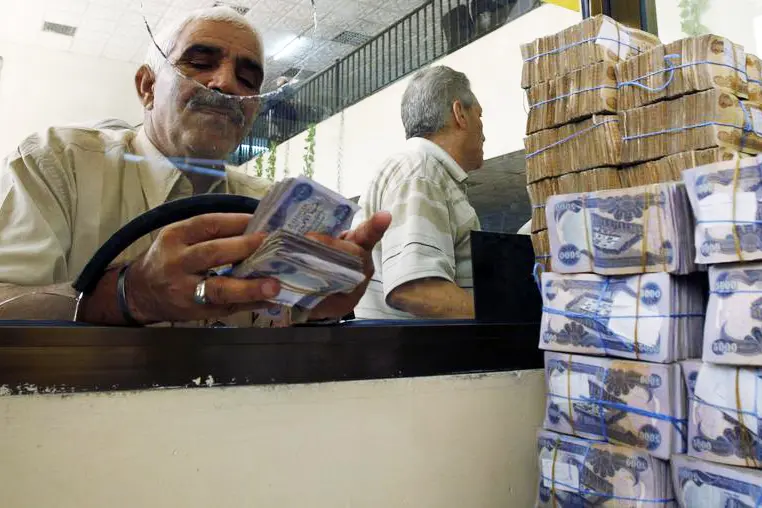PHOTO
The Iraqi government may also issue local bonds worth USD 6.2 billion next year to help finance its budget deficit, a government adviser said.
The Iraqi government is expected to begin discussions with the World Bank and the International Monetary Fund (IMF) in November to secure USD 6 billion to help finance its budget deficit, said a government advisor.
"Government negotiations will begin this month with the World Bank and the International Monetary Fund to secure (loans worth) USD 6 billion, with an interest rate that does not exceed two percent and with a long-term repayment period," Mazhar Mohammed Saleh, an economic adviser to the government, told Zawya.
"The government has also approved in the 2016 draft budget the issuance of medium-term, two-year local bonds valued at IQD 7 trillion (USD 6.2 billion) as a means to finance the budget deficit," he added.
In July, the IMF approved a USD 1.24 billion emergency loan to help Iraq, an OPEC producer, cope with the drop in crude oil prices and its military offensive against Islamic State militants.
The 2016 draft budget forecasts expenditure of IQD 106.9 trillion and a deficit of IQD 23.5 trillion, a planning ministry spokesman told Zawya. The spokesman, Abdel Zahra Al Hindawi, said the budget included IQD 29.5 trillion in spending for the government's investment plan and IQD 77.5 trillion to support government operating expenses.
He said the draft budget assumes an oil price of USD 45 per barrel. "Iraq will compensate for the decline in (crude oil) prices by increasing (monthly) oil exports next year to nearly 3.6 million barrels per day," Hindawi said.
The draft budget is expected to be sent to parliament's finance committee by the end of this week, said committee member MP Jabbar Ebadi. "The whole month of November may be devoted to discussions on next year's budget, after which, the draft budget will be put to vote by the parliament in December."
Last month, Iraq halted plans to issue international bonds because the yield it would have to pay on the debt was too high, according to a Reuters report.
© Zawya 2015





















